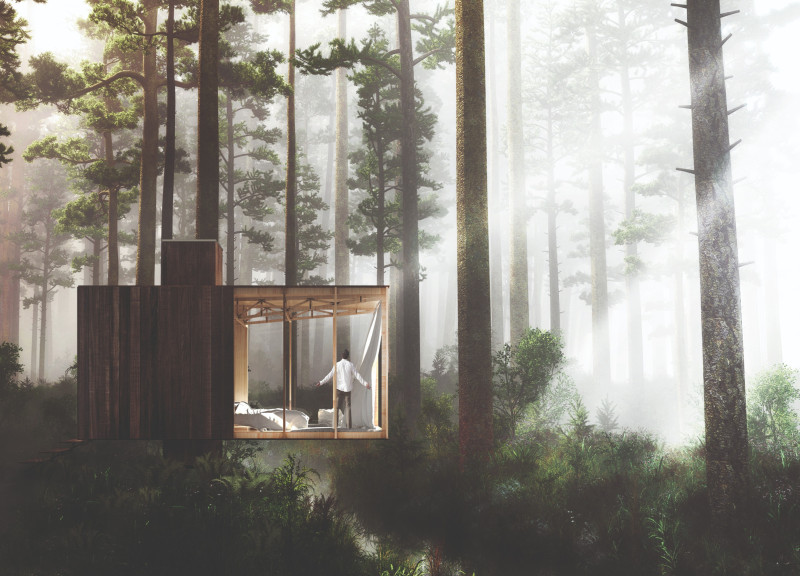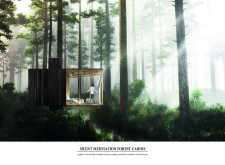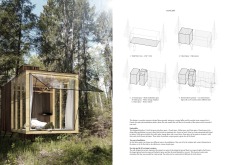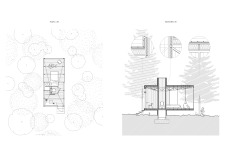5 key facts about this project
Silent Meditation Forest Cabins is a contemporary retreat situated in a forest, designed to foster a sense of calm and reflection. The project features an elevated wooden structure that minimizes its impact on the surrounding environment. The architecture encourages a strong connection between occupants and nature, offering a peaceful space for silent meditation.
Functionality
The design divides the interior into three specific areas that serve different functions. The closed space is the main meditation area, providing users with privacy to focus on their thoughts. This space is created to limit distractions from the outside world, making it easier for individuals to engage in deep reflection and mindfulness practices.
Next to the meditation area is the utility space. This area includes a dry toilet, storage, and a wood stove for warmth. These essential features allow visitors to feel comfortable during their stay, helping them stay connected to the natural surroundings while addressing their basic needs. The utility space enhances the practicality of the cabins, enabling guests to remain for longer periods without losing the meditative atmosphere.
Interaction with Nature
The open area of the cabin connects the indoors with the forest outside. Large windows provide views of the trees and landscape, letting in plenty of natural light. This design encourages occupants to appreciate the beauty of nature around them. The open space not only serves as a place for relaxation but also enhances the overall meditative experience, giving a sense of being part of the natural world.
Materiality and Sustainability
Wood is the primary material used in the construction of the cabins. This choice emphasizes sustainability and fits well with the forest setting. The warm, natural look of wood adds comfort to the interior while promoting an eco-friendly approach. Elevating the structure is an important design choice as well. It allows plants to grow beneath and supports local wildlife, striking a balance between human use and the ecosystem.
The design reflects a careful consideration of both functions and user experience. Each aspect is designed to create a peaceful retreat where meditation can be pursued in the heart of nature.





















































